Environment
-
 Environment
EnvironmentMangrove forests expand and contract with a lunar cycle
The carbon-sequestering trees grow in a roughly 18-year cycle according to tides influenced by the moon’s orbit, a study in Australia finds.
-
 Climate
ClimateHow to make recyclable plastics out of CO2 to slow climate change
Companies are turning atmospheric CO2 from smokestacks and landfills into plastics to shrink their carbon footprint.
-
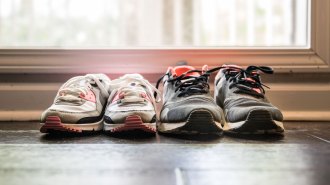 Climate
ClimateA carbon footprint life cycle assessment can cut down on greenwashing
As companies try to reduce their carbon footprint, many are doing life cycle assessments to quantify the full carbon cost of their products.
-
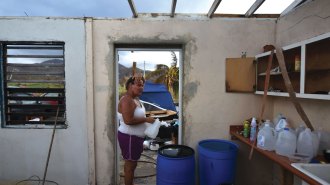 Climate
ClimateA coral pollution study unexpectedly helped explain Hurricane Maria’s fury
Tracking coral reef pollution in Puerto Rico, conservation researchers discovered by chance how the coastal ocean fueled Hurricane Maria.
-
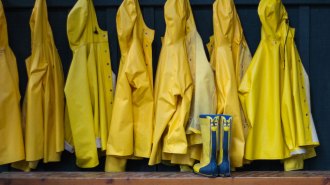 Environment
EnvironmentCommon, cheap ingredients can break down some ‘forever chemicals’
Forever chemicals, or PFAS, are harmful compounds that are very difficult to degrade. But some are no match for lye and dimethyl sulfoxide.
By Jude Coleman -
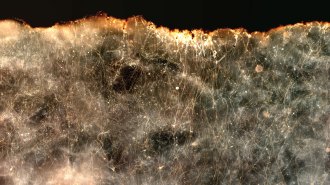 Environment
EnvironmentElectrical bacteria may help clean oil spills and curb methane emissions
Cable bacteria are living electrical wires that may become a tool to reduce methane emissions and clean oil spills.
By Nikk Ogasa -
 Environment
EnvironmentHow to make jet fuel from sunlight, air and water vapor
Solar kerosene could one day replace petroleum-derived jet fuel in airplanes and help stabilize greenhouse gas emissions.
By Nikk Ogasa -
 Environment
EnvironmentUnderground heat pollution could be tapped to mitigate climate change
Data from thousands of groundwater well sites in Europe reveal that more than half of the locations possess usable underground heat.
By Nikk Ogasa -
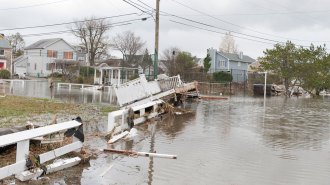 Science & Society
Science & SocietyIn the battle of human vs. water, ‘Water Always Wins’
In her new book, environmental journalist Erica Gies follows people who are looking for better solutions to extreme droughts and floods.
-
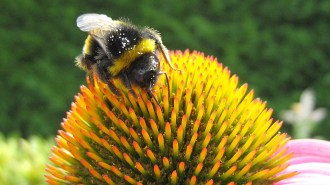 Environment
EnvironmentFlower shape and size impact bees’ chances of catching gut parasites
Bumblebees have higher chances of contracting a gut parasite from short, wide flowers than from blooms with other shapes, experiments show.
-
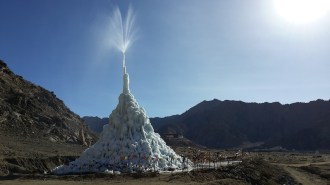 Environment
EnvironmentHow to build better ice towers for drinking water and irrigation
“Ice stupas” emerged in 2014 as a way to cope with climate change shrinking glaciers. Automation could help improve the cones’ construction.
By Nikk Ogasa -
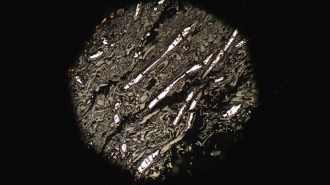 Environment
EnvironmentEarth’s oldest known wildfires raged 430 million years ago
430-million-year-old fossilized charcoal suggests atmospheric oxygen levels of at least 16 percent, the amount needed for fire to take hold and spread.
By Sid Perkins